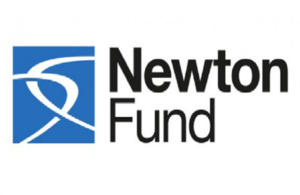Filipinos awarded UK Newton Fund science and innovation grants
The Newton Fund is paving the way for Philippine scientists to realize the full commercial potential of their research and contribute to a more sustainable economic growth.

15 Filipino scientists and business development specialists from the Department of Science and Technology (DOST) are undergoing an eight-day training programme in the UK this week. This is part of the Leaders in Innovation Fellowships programme run by the Royal Academy of Engineering in the UK and in partnership with DOST and involving the Asian Institute of Management in the Philippines. After the course in London and Oxford, the participants will continue receiving support in the Philippines to sharpen their business skills and refine their business plans to translate their research into viable commercial opportunities. The technologies of the researchers include a dengue diagnostic kit for early detection, a biomedical device to improve access to quality healthcare in far-flung areas and shrimp-pathogen detection for shrimp farmers.
The 15 awardees attended an education-themed event organised by the British Council Philippines for the visit by HRH Princess Anne last week. The event also included the 10 British Council Newton Grant Awardees for Institutional and Researcher links. Year 1 awardees are researchers from the country’s top schools, namely the Ateneo de Manila University, De La Salle University, St. Luke’s College of Medicine, the University of the Philippines—Diliman, Manila and Los Baños, and the University of San Carlos.
The British Council Researcher Links awardees will receive grants that will provide early-career Filipino researchers with exposure to world-class research from the UK, either through bilateral workshops or travel grants. Institutional Links awardees will receive seed funding to build a local hub of UK-Philippine expertise on relevant areas of research such as transport and tourism in sustainable cities, biodiversity, and wireless sensor networks to improve agricultural processes.
British Council Country Director Nicholas Thomas said:
The Philippines was one of fifteen emerging economies that was prioritized for the Newton Fund when it was launched last year, and we’re delighted at the number of promising links that have already been created between institutions and researchers in the UK and the Philippines.
The Newton Fund was launched in 2014 and the various activities are now in full swing. A UK delegation composed of seven top research institutions including the University of Cambridge, University of Nottingham, University of Bristol, and the London School of Hygiene & Tropical Medicine has just visited the Philippines and met with researchers from top Philippine Universities for a 2-day workshop on health research organized by the UK’s Medical Research Council and the DOST Philippine Council for Health Research and Development. MRC and DOST PCHRD will soon launch a call for proposals in the area of infectious diseases of relevance to the Philippines, and with particular focus on those diseases which impact the most vulnerable in society, such as dengue, drug-resistant TB, and malaria.
British Ambassador Asif Ahmad said:
The Philippines is one of the countries where the UK was keen to expand cooperation because we are convinced there is a lot of good researchers and innovative science here. Collaboration is at the heart of nearly all the great inventions. World class UK universities and institutions are keen to work with talented people and universities across the Philippines. I want to encourage experts here to look out for opportunities to work with the Newton Fund to build the relationships that can stimulate great science and innovation to boost long term prosperity in the Philippines.
During 2015 there will be a range of other events and calls for research bids including British Council’s PhD Programmes, Institutional Links and Researcher Links, as well as BBSRC’s Rice Research Initiative.
Notes
The Newton Fund is a global £375 million fund for 5 years beginning 2014. Through the Newton Fund, the UK will use its strength in research and innovation to promote the economic development and social welfare of partner countries.
Institutional Links are grants for establishing links between higher education, research institutions and businesses with the aim of translating research to drive economic development and social welfare in partner countries. Researcher Links grants are workshop and travel grants for research visits, with a focus on early career researchers. These Newton Fund programmes are being delivered by the British Council.
Leaders in Innovation Fellowships seek to build the capacity of researchers within the Philippines for entrepreneurship and commercialization of their research. This Newton Fund progamme is being delivered by the Royal Academy of Engineering in partnership with the Department of Science and Technology (DOST).
To learn more about the Newton Fund, you may visit the following websites:
You may also contact Newton Fund Managers in the Philippines:
British Council Andrea Teran Andrea.Teran@britishcouncil.org.ph
British Embassy Karen Hipol Karen.Hipol@fco.gov.uk